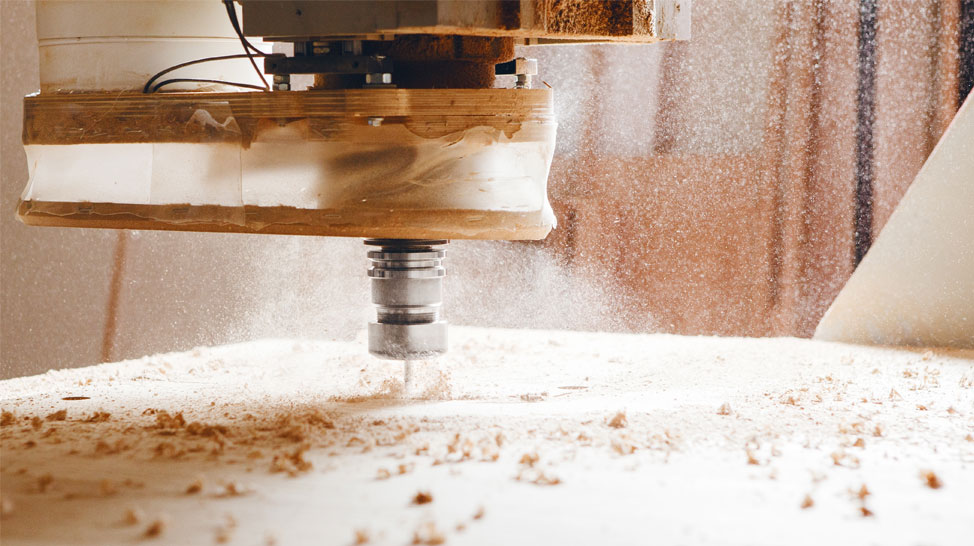Technology is changing at an incredible rate, and keeping up requires us to be innovative. With powerful computers now an integrated part of most of our lives, we are able to do things we once though impossible. But, if technology has changed the way we live our lives, it is thanks to the people who use it to turn their dreams into innovations.
From FabLab to work
As far as Arngrímur Joensen sees it, there is a direct connection between innovation and the life he lives in the Faroe Islands. He was introduced to FabLabs (short for fabrication laboratory) in 2017, when he took part in NORA’s summer school for apprentice craftsmen. He had been interested in working with CNC (or computerised numerical control, a type of machining that uses computers to control tools, allowing the operator to work in 3D) and, after attending the summer school in Iceland, he was convinced it was something for him. “The summer school was the first time I tried my hand at using 3D and tri-axial CNC. I do much the same in my job now—just on a larger scale,” he says. Most of of his work involves forming staircases, windows and doors from wood, but he has also fashioned components for use in the fishing industry and done engraving work.
Fabrication lab—fabulous potential
A FabLab is a small-scale workshop where people can use computer-controlled tools such as 3D printers and laser cutters to make products of their own design. And because the software and hardware used in a FabLab are generally open-source, it is possible for the work done in one FabLab to be replicated by others. The first FabLab saw the light of day at the Massachusetts Institute of Technology in 2001. Set up by Neil Gershenfeld, an MIT professor, for a course titled “How to Make (Almost) Anything”, the idea was to give students a place where they could turn their ideas into reality. Since then, some 1,900 FabLabs been set up around the world. In the Nordic region, Iceland has been at the forefront of the FabLab movement. Its first FabLab was set up in 2007, in Vestmannaeyjar, and NORA has twice held a FabLab summer school there. The first, in 2016, was for secondary-school students, while the one in 2017 that Arngrímur attended was for apprentice craftsmen.
From curious to convinced
Even though Arngrímur, now 30, was mostly just curious when he signed up for the summer school, he had always been interested in the open-source movement, just as he was already familiar with the machines the Icelandic FabLab was outfitted with. “I wasn’t sure if it would be something for me,” he says. “It looked really complicated, and it would have been a huge investment for the company I was working for, so it didn’t seem very realistic.” He spoke with his boss about CNC and his enthusiasm for it, but, at that point, he didn’t think he had much of a chance of ever working with it. Arngrímur’s interest in CNC led him to attend the NORA FabLab summer school, and, it turned out, his boss eventually saw the value of using the technology. “After the summer school in Iceland, I continued to learn as much as could about CNC technology and then, within just a couple of years, the company decided to buy CNC equipment, so now it’s something I work with on a daily basis,” he says.
Far from finished with FabLab
Looking back, he sees that the NORA summer school was a professional turning point. “I’m not sure what kind of job I’d have right now if I hadn’t taken part in the FabLab. That really whet my appetite for the technology and opened my eyes to a whole new way of doing things,” he says. Arngrímur encourages young people to learn more about FabLab and the courses that are offered. As far as his own FabLab training goes, it is far from over: he plans sign up for a FAB Academy, a 20-week course where participants plan and execute a new project each week. “I would encourage anyone to learn more about FabLab,” he says. “Ever since I was at the summer school, I knew I wanted to do a Fab Academy, and I hope I’ll get the chance soon.”
